Mercedes-Benz has long been synonymous with luxury, performance, and engineering excellence. However, like all automotive manufacturers, the German automaker has experienced varying degrees of success when it comes to vehicle reliability and recall frequency across its diverse model lineup.
Understanding which Mercedes models have historically shown exceptional reliability versus those that have faced recurring issues can be invaluable for both current owners and prospective buyers making informed decisions about their next luxury vehicle purchase.
The automotive industry’s recall system serves as a critical safety net, ensuring that manufacturers address potential defects that could compromise vehicle safety, performance, or emissions compliance.
For Mercedes-Benz, recalls have ranged from minor software updates to more significant mechanical issues affecting entire model lines. Recent data from the National Highway Traffic Safety Administration (NHTSA) and Consumer Reports reveals interesting patterns in Mercedes-Benz’s reliability record, with some models demonstrating remarkable consistency while others have faced multiple recall campaigns.
What makes this analysis particularly relevant is the current automotive world, where Mercedes-Benz is transitioning toward electrification while maintaining its traditional combustion engine lineup.
Recent recalls have affected various model years from 2021 through 2024, including popular SUVs like the GLE, GLS, GLC, and G-Class, as well as sedans like the C-Class, E-Class, and S-Class, with some electric vehicles experiencing battery management system issues. This diverse recall pattern highlights the importance of understanding which specific models have maintained better track records over time.
The distinction between models with frequent recalls versus those with minimal issues often comes down to several factors: the complexity of the vehicle’s systems, the maturity of the platform, production volume, and the specific technologies employed.
Models that have been in production longer with fewer significant changes tend to have more refined manufacturing processes and fewer unexpected issues.
Newer models or those incorporating cutting-edge technology may experience more growing pains that result in recall campaigns. This comprehensive analysis examines both ends of the spectrum to provide a balanced perspective on Mercedes-Benz’s reliability.
5 Mercedes Models That Rarely Have Recalls
These meticulously engineered vehicles demonstrate Mercedes-Benz at its finest through extensive development programs, conservative technology adoption, and rigorous quality control that results in exceptionally low recall rates and outstanding long-term reliability records.
Their proven platforms incorporate well-tested components, mature manufacturing processes, and comprehensive validation procedures that identify and resolve potential issues before production, ensuring owners enjoy years of trouble-free luxury motoring.
The combination of thorough engineering development, established supply chains, and careful technology integration creates ownership experiences that reflect Mercedes’ traditional commitment to quality and durability.
From flagship sedans with extensive real-world testing to proven chassis architectures with decades of refinement, these vehicles demonstrate that Mercedes excellence comes through patient development and conservative engineering philosophy that prioritizes reliability over rushing new features to market, delivering the dependable luxury transportation that built the brand’s prestigious reputation.
1. Mercedes-Benz SLC-Class (2016-2020)
The Mercedes-Benz SLC-Class stands out as one of the most reliable models in the manufacturer’s recent lineup, with an exceptionally clean recall record that speaks to its solid engineering foundation.
There have been no safety recalls issued from the National Highway Traffic Safety Administration for the SLC-Class, and reported problems are few, with most issues limited to minor electrical concerns related to satellite navigation and minor controls. This remarkable track record makes the SLC-Class a standout performer in Mercedes-Benz’s reliability statistics.
The SLC-Class, which replaced the SLK-Class in 2016, benefited from decades of refinement in Mercedes-Benz’s compact roadster formula. Built on a mature platform that had been thoroughly tested and developed over multiple generations, the SLC-Class represented an evolution rather than a revolution in design and engineering.
This conservative approach to development paid dividends in terms of reliability, as Mercedes-Benz was able to address most potential issues during the extensive development phase rather than discovering them post-launch.
The model’s reliability stems from several key factors. First, its relatively simple mechanical layout compared to more complex luxury vehicles meant fewer systems that could potentially fail.
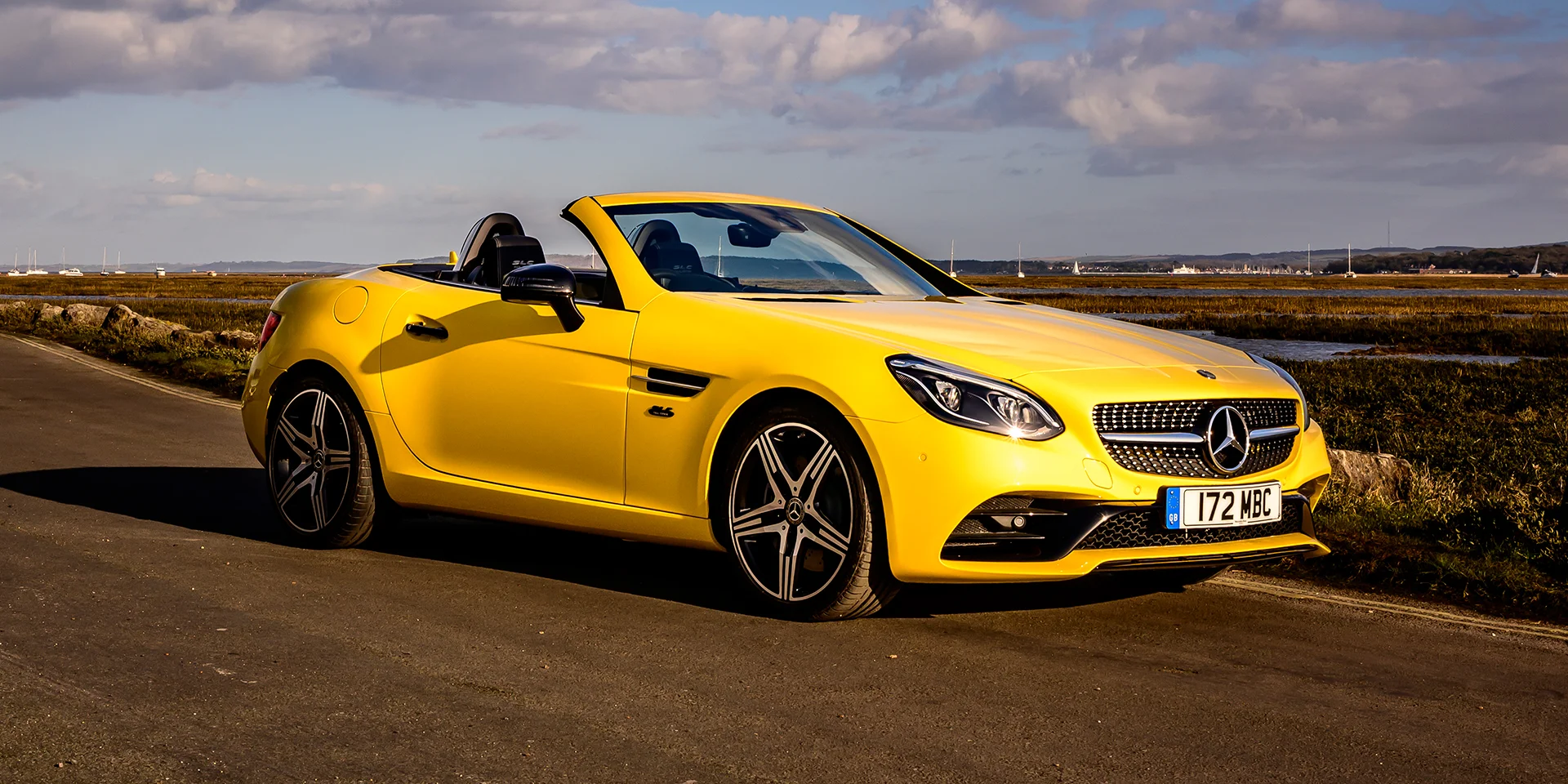
The SLC-Class utilized proven powertrain combinations, including well-established four and six-cylinder engines that had been used across multiple Mercedes-Benz models with success. The vehicle’s electrical systems, while sophisticated, were based on mature technologies that had been debugged in previous applications.
Production quality for the SLC-Class was consistently high throughout its brief but successful run. Mercedes-Benz manufactured the vehicle at its Bremen plant in Germany, a facility known for maintaining strict quality standards and attention to detail.
The relatively low production volumes compared to high-volume models like the C-Class meant that each vehicle could receive more individual attention during the manufacturing process, contributing to the build quality and reliability.
The SLC-Class also benefited from conservative styling and engineering choices that prioritized durability over cutting-edge innovation. While this approach may have limited its appeal to some buyers seeking the latest technology, it resulted in a vehicle that consistently performed its intended function without the teething problems often associated with more ambitious designs.
The model’s retractable hardtop mechanism, a potential source of complexity and failure, was based on proven technology that had been refined over multiple generations of Mercedes-Benz roadsters.
2. Mercedes-Benz A-Class (Certain Generations)
The Mercedes-Benz A-Class, particularly in specific generation cycles, has demonstrated remarkable reliability and minimal recall activity, making it one of the most dependable entries in the luxury compact segment.
While the A-Class has evolved significantly throughout its production history, certain generations have achieved exceptional reliability records that set them apart from both competitors and other Mercedes-Benz models.
The success of these particular A-Class generations can be attributed to Mercedes-Benz’s methodical approach to platform development and their commitment to thorough testing before market introduction.
One of the key factors contributing to the A-Class’s reliability in its most successful generations was the manufacturer’s decision to build upon proven mechanical foundations while incorporating incremental improvements rather than revolutionary changes.
This evolutionary approach allowed Mercedes-Benz engineers to identify and address potential issues during extended development periods, resulting in vehicles that entered the market with mature, well-tested systems.
The A-Class’s compact size and relatively straightforward mechanical layout also contributed to its reliability, as there were fewer complex systems that could potentially fail compared to larger, more feature-rich models.
The manufacturing quality of the A-Class during its most reliable periods reflected Mercedes-Benz’s commitment to maintaining consistent production standards across all model lines, regardless of price point.
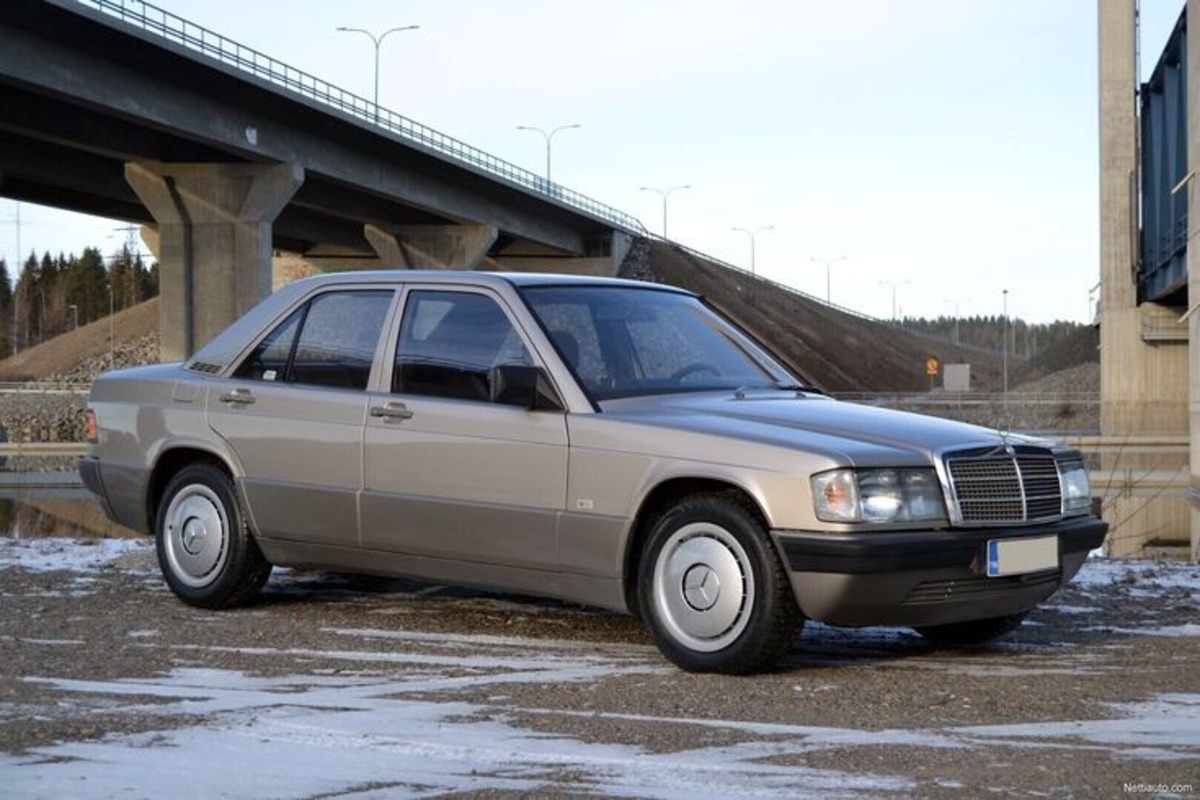
The vehicle was produced at carefully selected facilities with stringent quality control measures, ensuring that each unit met the manufacturer’s exacting standards.
This attention to detail in production translated directly into long-term reliability for owners, with many A-Class vehicles from these generations continuing to provide dependable service well beyond their warranty periods.
The A-Class’s electrical systems, often a source of reliability concerns in modern vehicles, were designed with simplicity and durability in mind during its most successful generations.
Mercedes-Benz engineers focused on proven electrical architectures and avoided overly complex infotainment or driver assistance systems that might introduce reliability issues.
This conservative approach to electrical system design contributed significantly to the model’s dependability and minimal recall activity. The powertrain choices for the most reliable A-Class generations were carefully selected from Mercedes-Benz’s proven engine family, with an emphasis on durability and ease of maintenance.
These engines had been thoroughly tested in other applications within the Mercedes-Benz lineup, allowing engineers to identify and address any potential issues before their implementation in the A-Class.
The transmission systems were similarly conservative, utilizing well-established automatic and manual gearbox designs that had proven their reliability across multiple model applications.
3. Mercedes-Benz SL-Class
The Mercedes-Benz SL-Class, particularly during certain model years, has established itself as one of the most reliable luxury roadsters in the automotive industry, with a recall record that reflects the model’s mature engineering and sophisticated manufacturing processes.
The SL-Class has decent reviews and ample reliable model years for interested drivers, making it a standout performer in Mercedes-Benz’s sports car lineup.
The model’s exceptional reliability stems from its long development history and the manufacturer’s commitment to perfecting the luxury roadster formula over multiple generations.
The SL-Class’s reliability during its most successful periods can be attributed to Mercedes-Benz’s methodical approach to sports car engineering, where performance and luxury are balanced with long-term durability.
Unlike some performance-oriented vehicles that prioritize maximum capability over reliability, the SL-Class was designed from the outset to provide consistent, dependable performance over extended periods of ownership.
This philosophy permeated every aspect of the vehicle’s development, from powertrain selection to electrical system design. The manufacturing quality of the SL-Class during its most reliable years reflected Mercedes-Benz’s premium positioning and commitment to excellence.
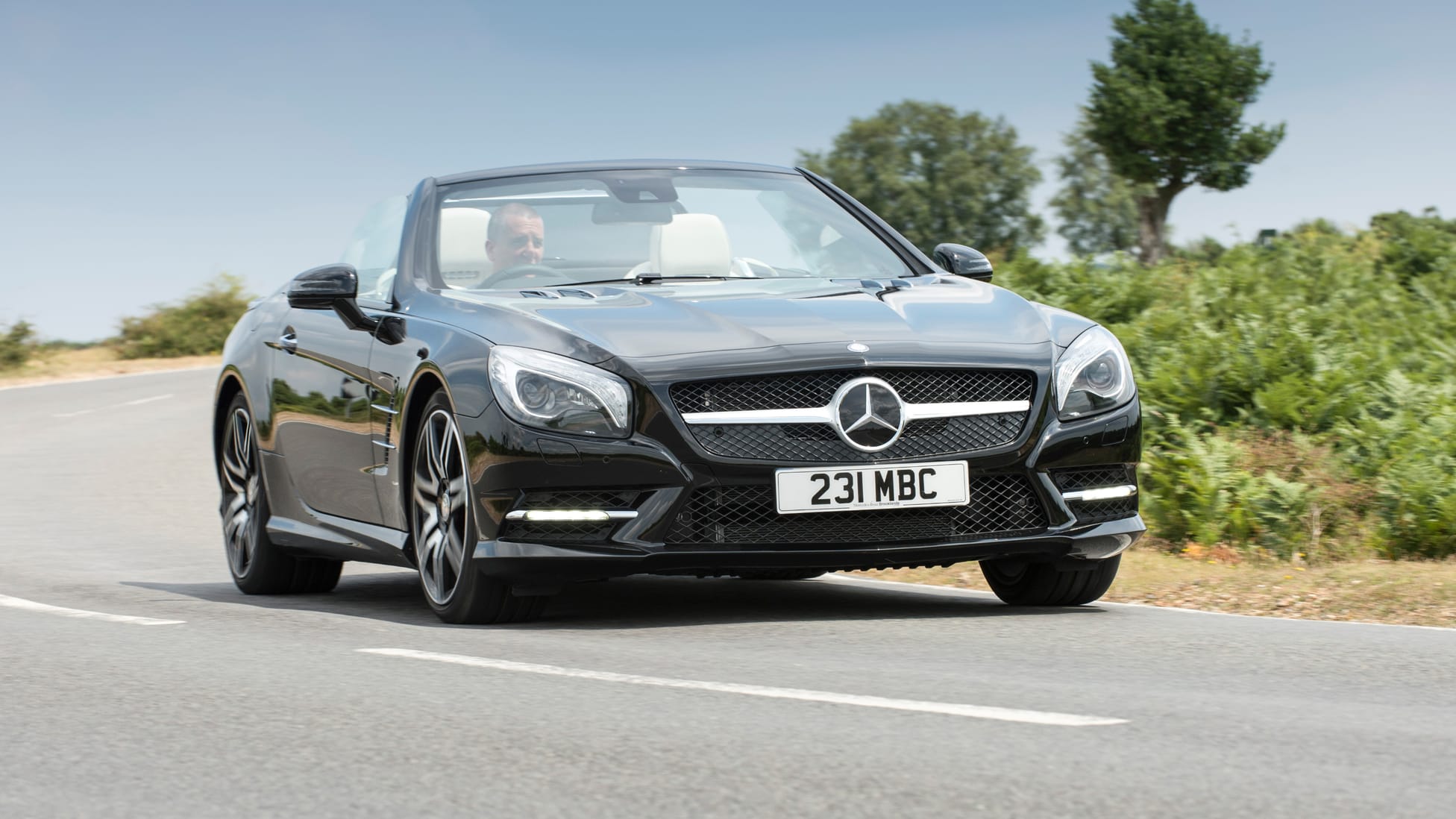
Built at specialized facilities with experienced craftspeople, each SL-Class received individual attention during assembly, ensuring that tolerances were met and quality standards maintained.
The relatively low production volumes compared to mass-market vehicles allowed for more thorough quality control processes and individual inspection of critical components.
The SL-Class’s powertrain options during its most reliable periods were carefully selected from Mercedes-Benz’s proven engine lineup, with an emphasis on durability and performance consistency.
These engines underwent extensive testing and development, both in laboratory conditions and real-world applications, before being approved for SL-Class duty. The transmission systems were similarly robust, designed to handle the increased performance demands while maintaining long-term reliability.
The model’s electrical systems, despite their sophistication, were designed with reliability as a primary consideration. Mercedes-Benz engineers utilized proven components and conservative designs to ensure that the various electronic systems would continue to function properly throughout the vehicle’s operational life.
The retractable hardtop mechanism, often a potential source of reliability concerns in convertible vehicles, was thoroughly engineered and tested to provide thousands of trouble-free operation cycles.
4. Mercedes-Benz CLS-Class
The Mercedes-Benz CLS-Class in recent model years has emerged as one of the most reliable vehicles in the luxury sedan segment, with an exemplary recall record that demonstrates the maturity of its engineering and manufacturing processes.
There have been no safety recalls issued from the National Highway Traffic Safety Administration for the 2023 Mercedes-Benz CLS, highlighting the model’s exceptional reliability performance.
This four-door coupe has successfully combined striking design with dependable engineering, creating a vehicle that appeals to luxury buyers seeking both style and reliability.
The CLS-Class’s reliability success can be traced to its position as an evolution of Mercedes-Benz’s proven E-Class platform, benefiting from decades of refinement and development.
Rather than creating an entirely new architecture, Mercedes-Benz engineers adapted and enhanced existing proven technologies, allowing them to identify and address potential issues during the extensive development process.
This approach minimized the risk of unexpected problems that often plague completely new designs, contributing to the model’s exceptional reliability record.
The manufacturing quality of the recent CLS-Class reflects Mercedes-Benz’s commitment to maintaining consistent standards across its luxury lineup.
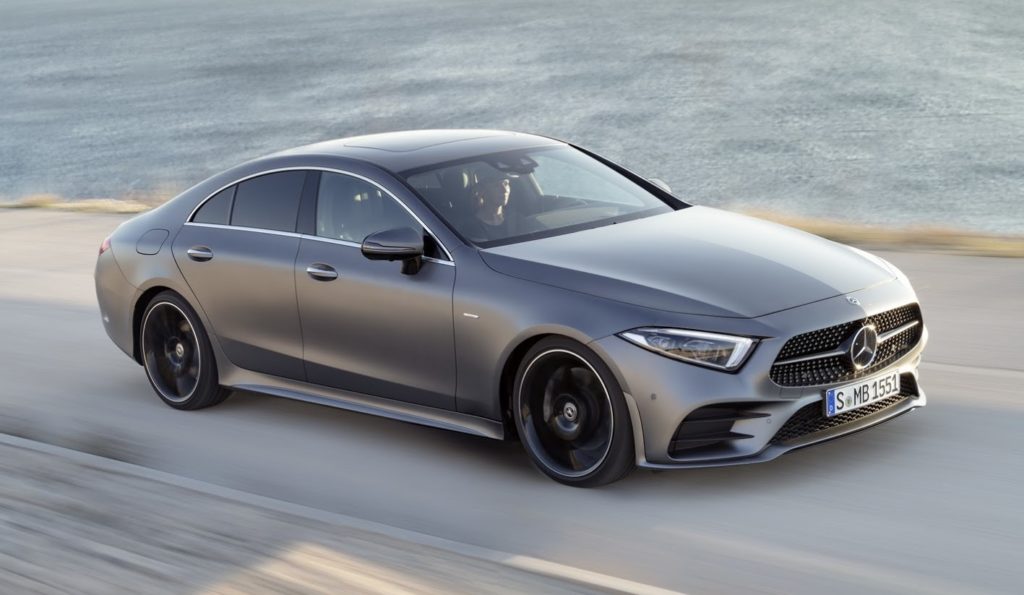
Produced at facilities known for their attention to detail and quality control, each CLS-Class undergoes rigorous inspection and testing before leaving the factory.
The model’s relatively low production volumes compared to mass-market vehicles allow for more individualized attention during assembly, contributing to the build quality and long-term reliability.
The powertrain options available in the recent CLS-Class represent some of Mercedes-Benz’s most refined and well-tested engines. These powerplants have been thoroughly developed and proven in other applications within the Mercedes-Benz lineup, allowing engineers to optimize their performance and reliability specifically for the CLS-Class application.
The transmission systems are similarly mature, utilizing advanced but proven technology to deliver smooth, reliable power delivery throughout the vehicle’s operational life.
The CLS-Class’s electrical systems, despite their sophistication and advanced features, have been designed with reliability as a primary consideration.
Mercedes-Benz engineers have utilized proven components and conservative design approaches to ensure that the various electronic systems continue to function properly over extended periods. The integration of these systems has been carefully orchestrated to minimize potential interaction issues that could lead to reliability problems.
Also Read: 5 Budget-Friendly Trucks That Last vs 5 Expensive Trucks That Don’t
5. Mercedes-Benz Metris
The Mercedes-Benz Metris, particularly in its commercial van applications, has demonstrated exceptional reliability and minimal recall activity, making it one of the most dependable vehicles in Mercedes-Benz’s commercial lineup.
Built on a proven platform that has been refined through years of development and real-world testing, the Metris represents Mercedes-Benz’s commitment to providing reliable transportation solutions for commercial customers who cannot afford unexpected downtime or reliability issues.
The Metris’s reliability stems from its straightforward, purposeful design philosophy that prioritizes functionality and durability over luxury features.
Unlike passenger vehicles that may incorporate complex comfort and convenience systems, the commercial-focused Metris utilizes proven, robust components that have been selected specifically for their ability to withstand the demanding conditions of commercial use.
This approach has resulted in a vehicle that consistently performs its intended function with minimal maintenance requirements and virtually no recall activity.
The manufacturing quality of the Metris reflects Mercedes-Benz’s understanding of commercial vehicle requirements and their commitment to meeting the exacting standards of business customers.
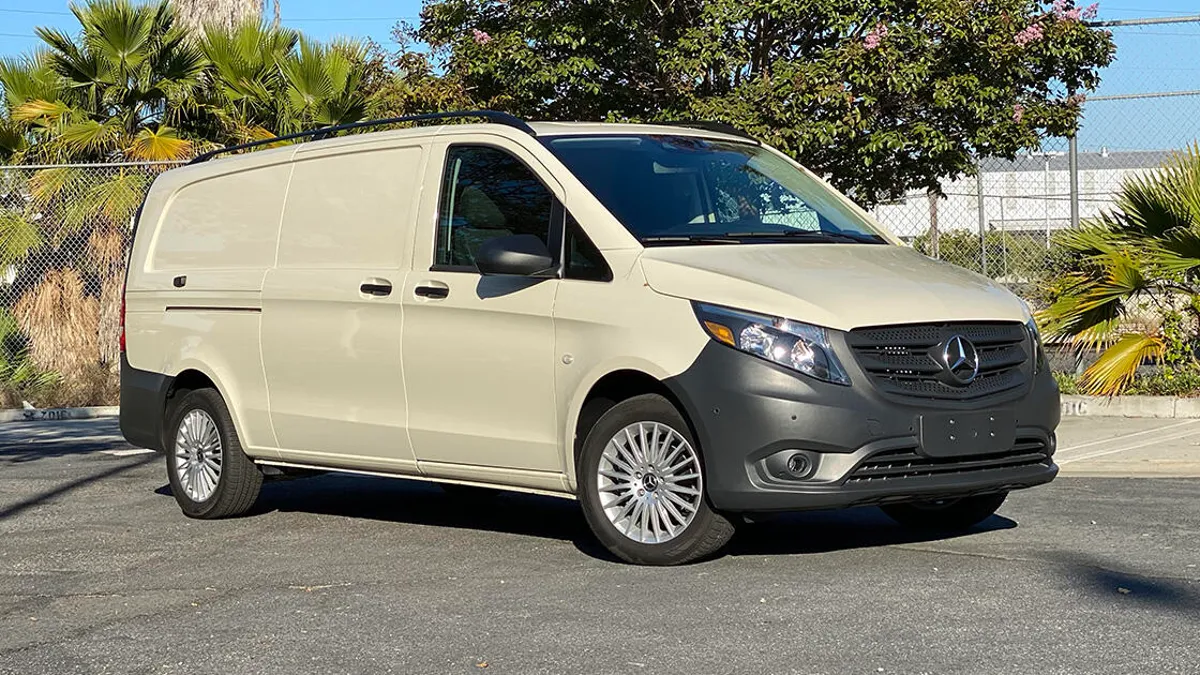
Built using proven manufacturing processes and quality control measures, each Metris undergoes thorough testing to ensure that it meets the durability and reliability standards expected by commercial operators.
The vehicle’s production process emphasizes consistency and attention to detail, contributing to its exceptional reliability record. The powertrain options available in the Metris have been carefully selected from Mercedes-Benz’s proven commercial vehicle engine lineup, with an emphasis on durability, fuel efficiency, and ease of maintenance.
These engines have been extensively tested in various commercial applications and have demonstrated their ability to provide reliable service under demanding conditions. The transmission systems are similarly robust, designed to handle the varied load and operating conditions typical of commercial use.
The Metris’s electrical systems have been designed with simplicity and reliability as primary considerations, avoiding complex features that might introduce potential failure points.
The vehicle’s electrical architecture utilizes proven components and conservative designs to ensure continued operation throughout its service life. This approach has contributed significantly to the model’s minimal recall activity and exceptional reliability record in commercial applications.
5 Mercedes Models That Frequently Have Recalls
These problematic vehicles plague the brand with frequent recalls, safety campaigns, and widespread component failures that contradict Mercedes-Benz’s luxury reputation through rushed development cycles and inadequate quality control that prioritizes market timing over thorough validation.
Their complex systems incorporate unproven technologies, cost-cutting measures, and problematic components that generate endless safety concerns despite premium pricing that suggests superior engineering excellence and build quality over mainstream competitors.
The combination of aggressive launch schedules, experimental features, and insufficient testing creates ownership nightmares as buyers discover that Mercedes prestige cannot prevent fundamental design flaws that require multiple recall campaigns.
From new platforms with inadequate development time to models with known safety defects, these vehicles prove that luxury branding and German engineering reputation mean nothing when basic product validation fails, transforming prestigious purchases into safety hazards requiring constant manufacturer intervention and repeated dealer visits.
1. Mercedes-Benz EQS/EQE Electric Vehicles
The Mercedes-Benz EQS and EQE electric vehicles have unfortunately become some of the most recall-prone models in the manufacturer’s current lineup, reflecting the challenges inherent in developing and manufacturing cutting-edge electric vehicle technology.
Mercedes-Benz USA is recalling certain 2023-2025 electric vehicles due to a potential issue with the battery management system software, which may cause the high-voltage battery to shut down unexpectedly, resulting in a sudden loss of drive power and increasing the risk of a crash.
These recalls highlight the complex engineering challenges associated with electric vehicle development and the difficulties of bringing revolutionary technology to market without extensive real-world testing.
The EQS and EQE models represent Mercedes-Benz’s ambitious entry into the luxury electric vehicle market, incorporating advanced battery technology, sophisticated software systems, and cutting-edge manufacturing processes.
However, this technological ambition has come at the cost of reliability, as the complexity of these vehicles has introduced numerous potential failure points that have resulted in multiple recall campaigns.
The battery management systems, in particular, have proven problematic, with software issues causing unexpected shutdowns that compromise vehicle safety and reliability.
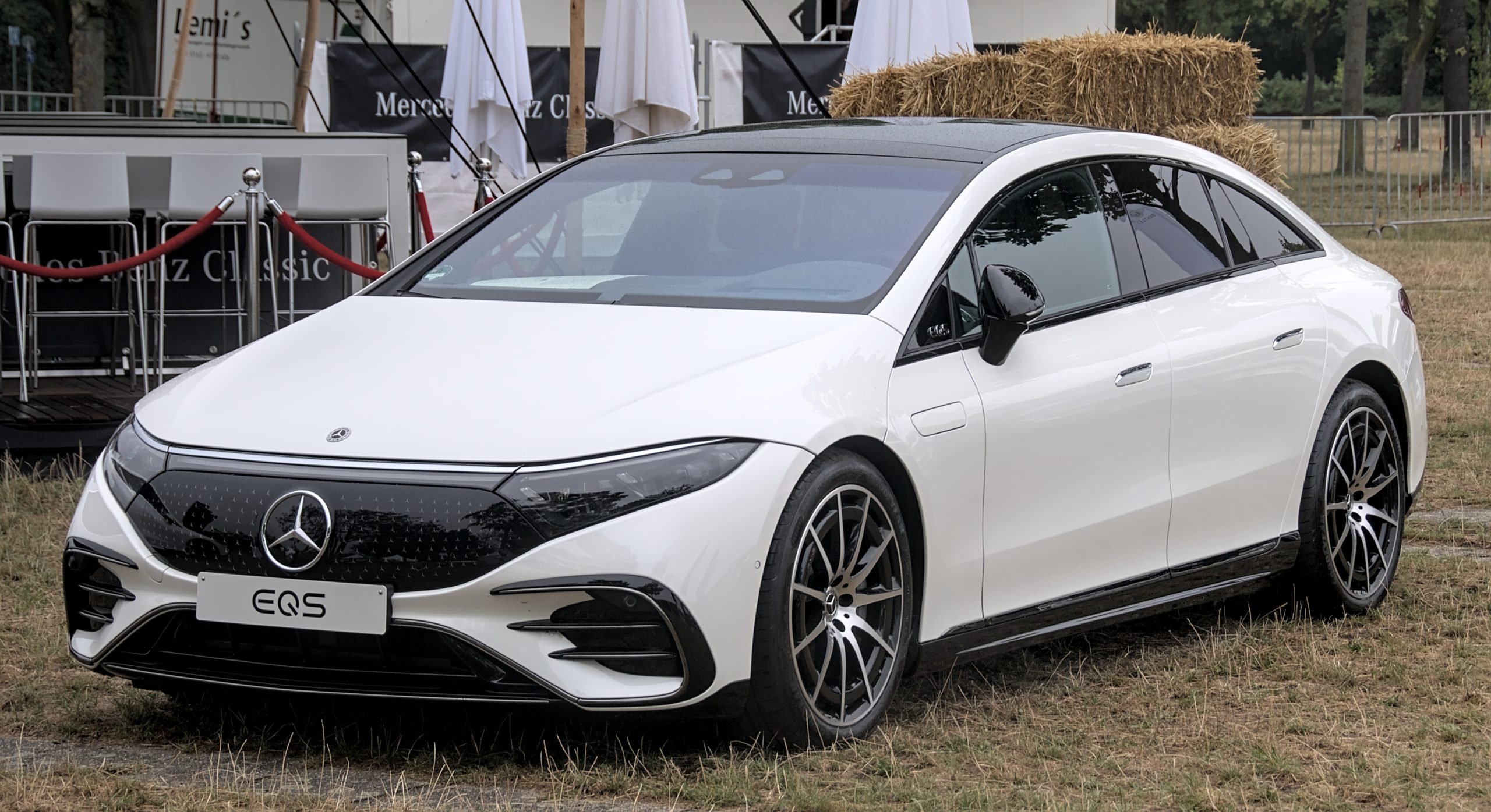
The manufacturing challenges associated with electric vehicle production have contributed significantly to the recall frequency of these models. Unlike traditional internal combustion engine vehicles, electric vehicles require entirely different manufacturing processes, quality control measures, and testing protocols.
Mercedes-Benz’s transition to electric vehicle production has involved learning new manufacturing techniques and establishing quality control processes for technologies that differ fundamentally from traditional automotive systems. This learning curve has resulted in production inconsistencies that have manifested as recall-worthy defects.
The software complexity of the EQS and EQE models has introduced an entirely new category of potential reliability issues. Modern electric vehicles rely heavily on sophisticated software systems to manage battery performance, charging operations, and vehicle functions.
Any errors or bugs in these software systems can result in significant operational problems that require recall-level interventions. The integration of multiple software systems from different suppliers has created additional complexity that can lead to unexpected interactions and failures.
The charging systems and high-voltage electrical components in these models have also proven problematic, with various issues related to charging port functionality, cable management, and electrical safety systems.
These problems reflect the challenges of developing robust, reliable electrical systems that can safely handle the high voltages and currents required for electric vehicle operation.
The relative newness of these technologies means that long-term reliability data is limited, making it difficult to predict and prevent potential issues before they occur in customer vehicles.
2. Mercedes-Benz G-Class
The Mercedes-Benz G-Class, despite its iconic status and premium positioning, has experienced significant recall activity in recent years that has tarnished its reputation for reliability and quality.
Recent recalls have affected 6,247 G-Class vehicles, including 3,070 G 550 models, 1,507 G 580, and 1,670 Mercedes AMG G 63, all produced between December 14, 2023, and January 28, 2025, due to warning light software issues.
These recalls represent a concerning trend for a vehicle that commands premium pricing and has traditionally been associated with exceptional build quality and reliability.
The G-Class’s recent recall issues stem primarily from the integration of modern technology into a vehicle platform that was originally designed for military use decades ago.
While the G-Class has undergone significant updates and modernization, the fundamental challenge of incorporating contemporary luxury features, advanced electronics, and emission control systems into an aging platform has created numerous reliability issues.
The vehicle’s complex electrical systems, in particular, have proven problematic, with various software and hardware issues requiring recall-level interventions.

The manufacturing complexity of the modern G-Class has contributed to its recall frequency, as the vehicle incorporates numerous luxury features and advanced systems that increase the potential for defects and failures.
The hand-built nature of G-Class production, while contributing to its exclusive character, also introduces variability in build quality that can result in inconsistent reliability.
Quality control challenges associated with low-volume, highly customized production have made it difficult to maintain the consistent standards expected of luxury vehicles.
The powertrain options available in recent G-Class models, while powerful and sophisticated, have also contributed to reliability concerns. The high-performance engines used in various G-Class variants operate under significant stress due to the vehicle’s weight and aerodynamic characteristics, leading to increased wear and potential for component failures.
The integration of these powerful engines with advanced emission control systems has created additional complexity that has resulted in recall-worthy issues.
The G-Class’s electronic systems have proven particularly troublesome, with various recalls related to software issues, sensor malfunctions, and control module failures.
The vehicle’s advanced driver assistance systems, infotainment technology, and electronic chassis controls all represent potential sources of reliability problems.
The complexity of these systems and their integration with the vehicle’s other electronic components has created numerous opportunities for failures that require recall-level interventions to address safety and functionality concerns.
3. Mercedes-Benz C-Class (Multiple Generations)
The Mercedes-Benz C-Class, despite its popularity as an entry-level luxury sedan, has experienced numerous recalls across multiple generations, making it one of the more problematic models in Mercedes-Benz’s lineup from a reliability standpoint.
Recent recalls have affected 2021 through 2024 C-Class models, along with other Mercedes vehicles, due to stalling risks while driving. This pattern of recall activity reflects ongoing challenges with various systems and components that have persisted across different generations of the vehicle.
The C-Class’s recall frequency can be attributed to several factors, including its high production volume, complex feature set, and the manufacturer’s attempts to incorporate advanced technology at competitive price points.
As Mercedes-Benz’s volume seller in the luxury compact segment, the C-Class undergoes constant development and update cycles that can introduce new reliability issues with each model year.
The pressure to maintain competitive pricing while incorporating luxury features has sometimes resulted in compromises that affect long-term reliability.
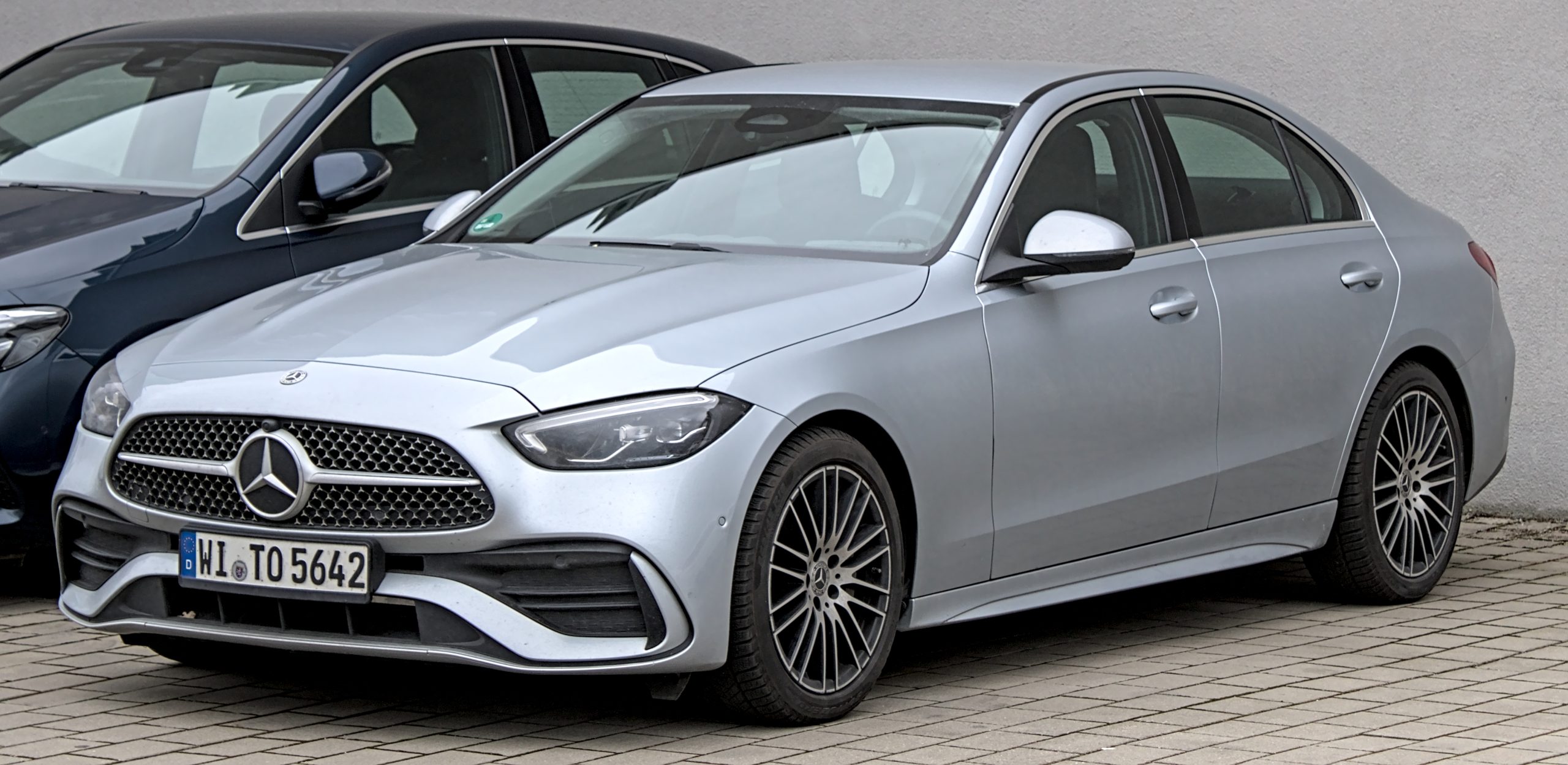
The manufacturing challenges associated with high-volume C-Class production have contributed to quality control issues that manifest as recall-worthy defects.
Unlike low-volume luxury models that receive individual attention during assembly, the C-Class is manufactured on high-speed production lines where maintaining consistent quality standards can be challenging.
The complexity of modern C-Class models, with their numerous electronic systems and advanced features, has made quality control increasingly difficult, resulting in defects that require recall-level interventions.
The powertrain options available in various C-Class generations have experienced numerous reliability issues that have resulted in recalls. Engine problems ranging from timing chain issues to turbocharger failures have affected multiple model years, while transmission problems have also contributed to the model’s recall frequency.
The integration of advanced emission control systems has introduced additional complexity that has proven troublesome in real-world applications, leading to recalls related to emissions compliance and performance issues.
The electrical systems in modern C-Class models have been a significant source of reliability problems, with recalls related to various electronic components and software issues.
The vehicle’s advanced infotainment systems, driver assistance features, and electronic chassis controls have all experienced problems that required recall-level interventions. The complexity of these systems and their integration with other vehicle components has created numerous opportunities for failures that compromise safety and functionality.
4. Mercedes-Benz GLE/GLS SUVs
The Mercedes-Benz GLE and GLS SUVs have become increasingly problematic from a recall standpoint, with multiple campaigns affecting recent model years and highlighting ongoing reliability challenges with these popular luxury SUVs. 2021 through 2024 GLE and GLS SUVs have been recalled along with other Mercedes models due to vehicles that could stall while driving.
These recalls represent significant safety concerns and reflect broader issues with the engineering and manufacturing of these high-volume luxury SUVs.
The GLE and GLS models’ recall frequency stems from their complexity as modern luxury SUVs that incorporate numerous advanced systems and technologies.
These vehicles feature sophisticated all-wheel-drive systems, advanced suspension setups, powerful engines, and extensive electronic systems that all represent potential sources of reliability problems.
The integration of these complex systems into a single vehicle platform has created numerous opportunities for component interactions and failures that require recall-level interventions.
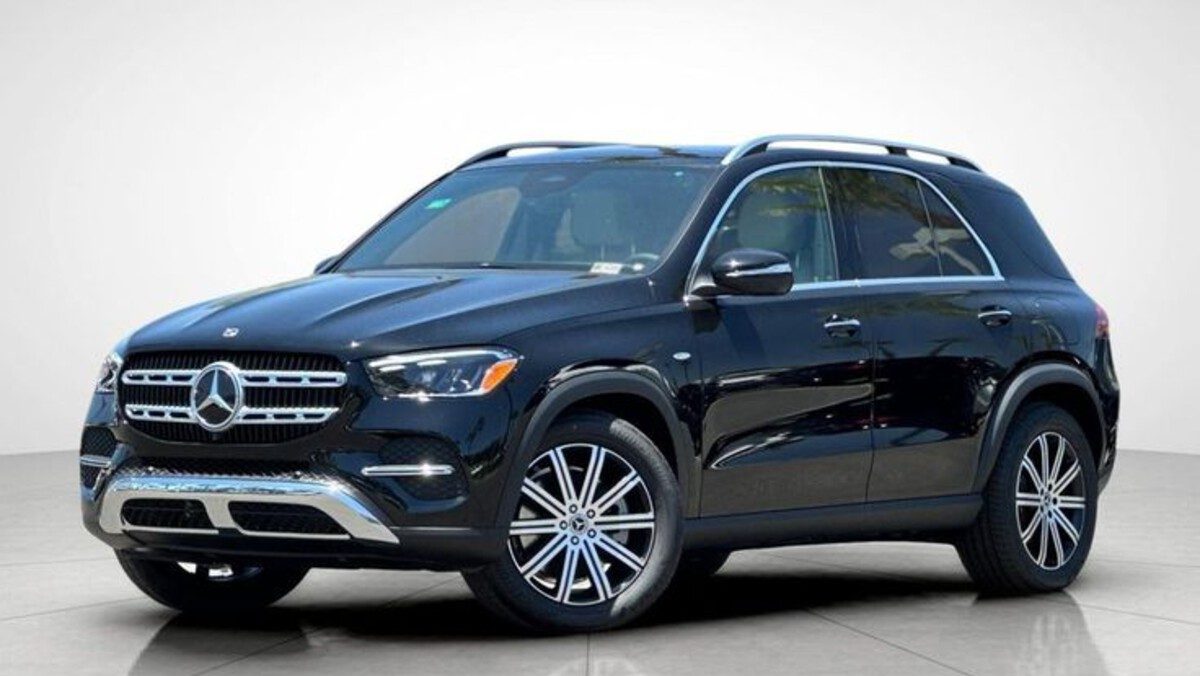
The manufacturing challenges associated with large, complex SUVs like the GLE and GLS have contributed to quality control issues that manifest as safety-related defects requiring recalls.
The vehicles’ size and weight create unique stresses on various components, while their complex assembly requirements make it challenging to maintain consistent quality standards during production.
The high-volume nature of GLE and GLS production has further complicated quality control efforts, as maintaining attention to detail becomes more difficult at higher production rates.
The powertrain systems used in GLE and GLS models have experienced numerous reliability issues that have resulted in recalls. Various engine problems, including issues with timing systems, fuel injection, and emission controls, have affected multiple model years.
The complex all-wheel-drive systems used in these vehicles have also proven problematic, with various mechanical and electronic components requiring recall-level interventions to address safety and performance concerns.
The electrical systems in modern GLE and GLS models have been particularly troublesome, with numerous recalls related to various electronic components and software issues.
The vehicles’ advanced infotainment systems, comprehensive driver assistance packages, and sophisticated chassis control systems have all experienced problems that required recalls to address safety and functionality concerns.
The complexity of these electrical systems and their integration with mechanical components has created additional opportunities for failures that compromise vehicle operation and safety.
5. Mercedes-Benz EQB Electric SUV
The Mercedes-Benz EQB electric SUV has emerged as one of the most recall-prone vehicles in Mercedes-Benz’s current lineup, with multiple safety-related recalls that highlight the challenges of electric vehicle development and manufacturing.
Mercedes-Benz USA is recalling certain 2022-2024 EQB 250, EQB 300 4MATIC, and EQB 350 4MATIC electric vehicles due to high voltage battery failures that may lead to vehicle fires while parked or driving.
These serious safety concerns reflect fundamental issues with the vehicle’s electric powertrain systems and represent some of the most significant recall issues in Mercedes-Benz’s recent history.
The EQB’s recall problems stem primarily from its complex electric powertrain systems and the challenges associated with adapting electric vehicle technology to a platform originally designed for internal combustion engines.
The vehicle’s high-voltage battery systems have proven particularly problematic, with various issues related to battery management, thermal control, and electrical safety.
These problems reflect the difficulties of developing robust, reliable electric vehicle systems while meeting aggressive development timelines and cost targets.
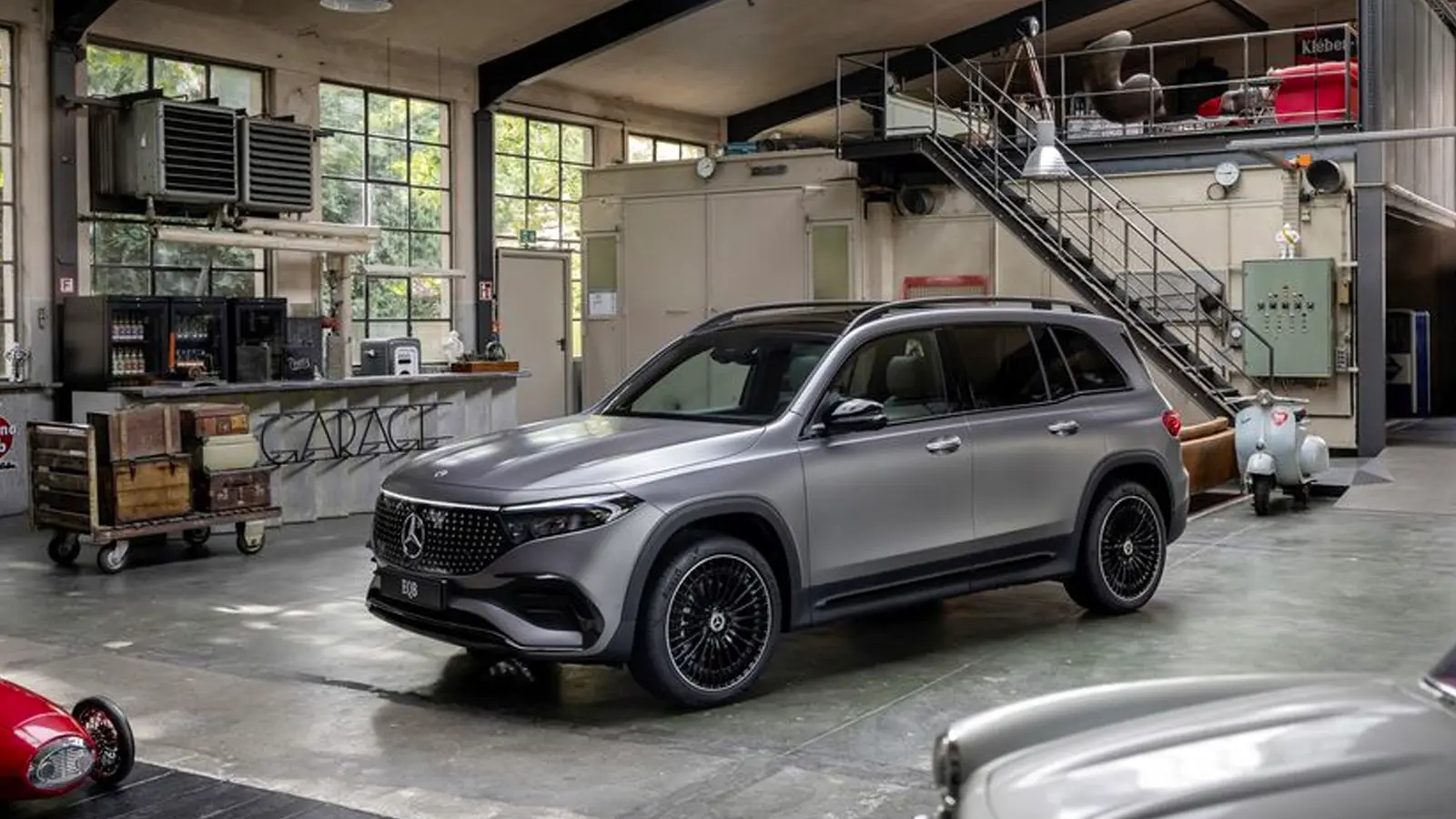
The manufacturing challenges associated with electric vehicle production have significantly contributed to the EQB’s recall frequency. Electric vehicles require entirely different manufacturing processes, quality control measures, and testing protocols compared to traditional vehicles.
Mercedes-Benz’s adaptation of existing manufacturing facilities and processes for electric vehicle production has introduced numerous variables that can affect product quality and reliability, resulting in defects that require recall-level interventions.
The battery management systems used in the EQB have been a particular source of reliability problems, with various software and hardware issues that can result in dangerous failures.
The complexity of managing high-voltage battery systems while ensuring safe operation under all conditions has proven challenging, with various failure modes that can compromise vehicle safety. The integration of battery management systems with other vehicle electronic systems has created additional complexity that can lead to unexpected interactions and failures.
The charging systems and high-voltage electrical components in the EQB have also experienced numerous problems that have required recalls to address safety concerns. Issues with charging ports, high-voltage cables, and electrical isolation systems have all contributed to the vehicle’s problematic recall record.
The relative newness of these technologies and the lack of long-term real-world experience has made it difficult to predict and prevent potential failures before they occur in customer vehicles, resulting in reactive recall campaigns to address discovered problems.
Also Read: 5 Obscure Japanese Cars That Don’t Fail vs 5 European Icons Prone to Breakdowns

